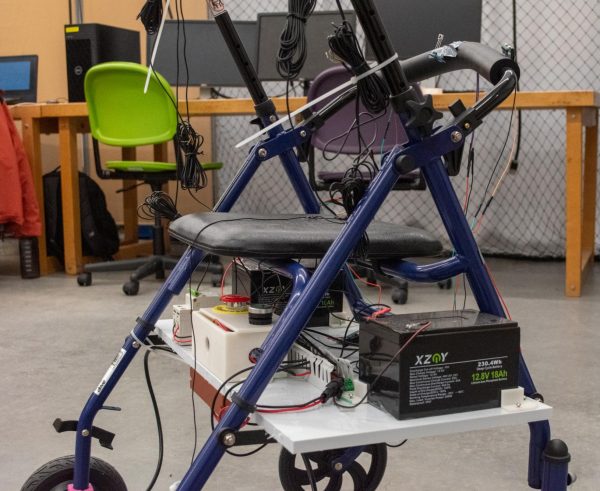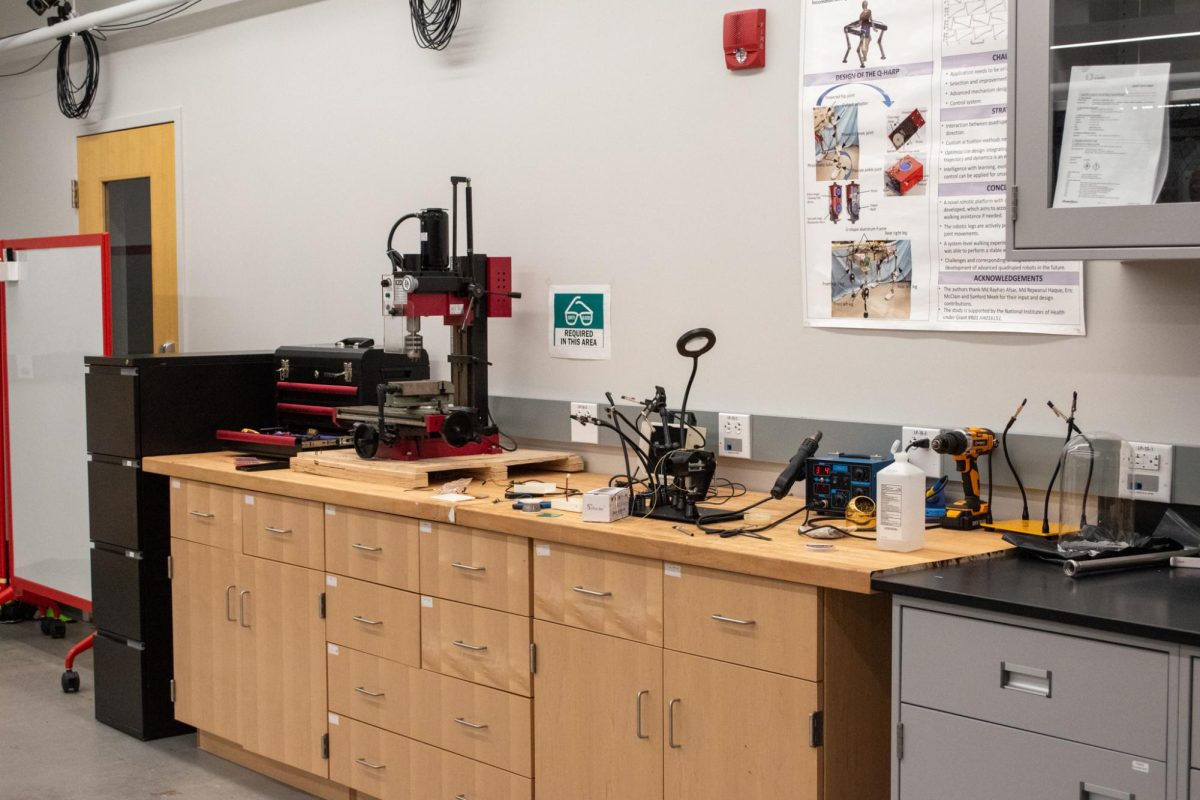Researchers at Kent State’s Advanced Medical Robot Lab are working on a small, square device for hospitals to change health care for the better, after the proper testing.
This device is one of many being developed at the lab. It can read and synchronize a patient’s breathing to know when and where to send electrode stimulation through wires connected to targeted nerves in the body.
“We try to use engineering ways to create medical devices and robots that can make procedures easier and provide advanced medical service,” Tao Shen, the lab’s director, said.
While it takes years for FDA approval to start human testing with these kinds of devices, the electrode stimulation device has been sent to MetroHealth and is the closest to being used for practical purposes, Shen said.
The electrodes are sent to nerves in the body to alleviate pain and other symptoms better than current prescription pills. Once it’s approved, the device can be prescribed to patients to use at home and send their doctor and nurses data about their care, eliminating the cost and hassle of trips to the hospital.
Nazmul Islam, a graduate mechatronics engineering major, said he is primarily working with the electrode stimulation robot and a surgery robot.
The surgery robot will reduce patients’ hospital stays and surgeons’ work through laparoscopic surgeries to avoid open surgery.
Some robots, such as the surgery robot and a robot walker, still need more data and testing before they can be sent to hospitals and begin use.

“When mobility-impaired people operate it, they don’t need to think about coordinating, and it minimizes their effort,” Shen said. “But, I would say we need separate data, more human subject data before it moves on to human use.”
The lab gets ideas for its robots through discussions with hospitals, Shen said, that tell the researchers about current medical problems so it can engineer a solution that works for their research and the hospitals’ needs.
Along with Shen, a few graduate students research in the lab throughout the year, as well as undergraduates who are part of Kent State’s Summer Undergraduate Research Experience and College Credit Plus high school students in the summer.
Islam’s work in the lab goes hand-in-hand with his coursework and overall goal for his studies and career, he said.
“Once I do the courses, I can match up the theoretical and practical implementation,” Islam said. “I am reading the math behind that, how it is working, and here, I am implementing that.”
The goal for his research and his career after graduation is to help humanity, which he believes is being achieved through the research done at the lab.
“When you are doing something innovative,” Islam said. “You are helping a mass of people; you are not helping only one person.”
Will Jernigan is a reporter. Contact him at [email protected].



